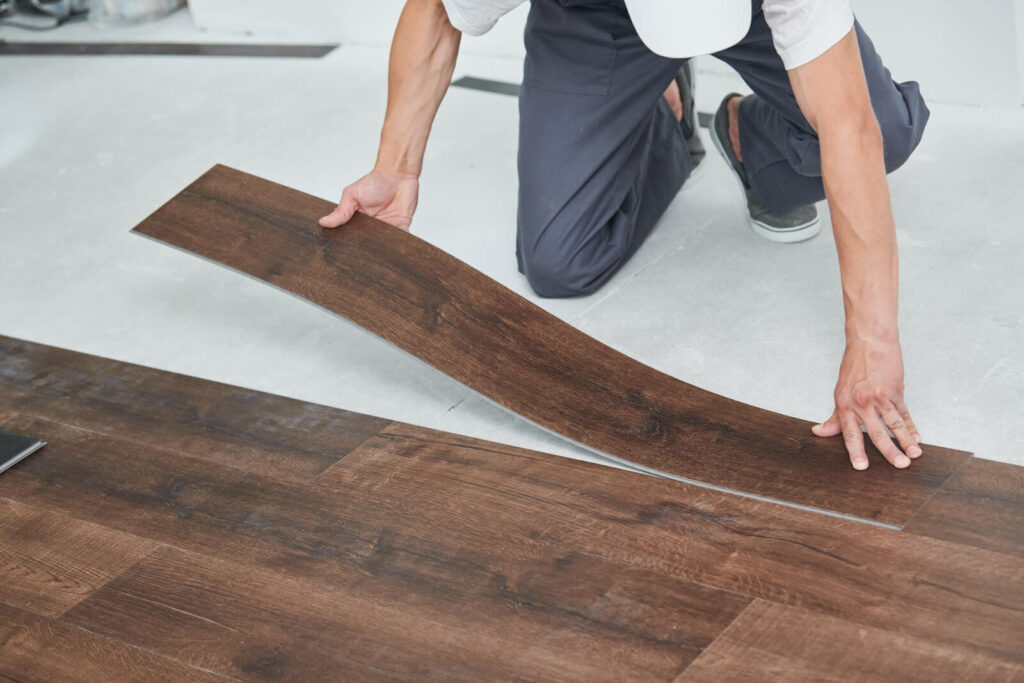There are enough types of flooring out there to make your head spin. While reliable flooring companies can help you choose the right material for your property, it helps to do your homework, too. Vinyl floors and High-End Resilient Floors (HERF) can be particularly difficult to tell apart due to their similar general appearance. While these floors have plenty in common, they also differ in some key ways. Let’s go over the notable differences between vinyl and resilient floors so you can make a more informed flooring decision.
Difference Between Vinyl and Resilient Flooring
Vinyl Floors can Be Resilient, But Not all Resilient Floors Are Vinyl
First, let’s clear up a point of confusion. Some floors are both “resilient” and made from vinyl, such as luxury vinyl tile flooring. However, resilient floors come in more varieties than just vinyl – you can find resilient floors made from rubber, linoleum, cork, and more. In other words, there is some overlap between vinyl and resilient flooring, but they remain two distinct categories for reasons we’ll discuss next.
Resilient Floors Are Softer than Standard Vinyl Floors
A floor type is deemed resilient when it falls somewhere between the softness of carpeting and the hardness of, say, hardwood or standard tile. Put simply, resilient floors have some give or “bounce” to them, offering the best of both worlds. Strict vinyl floors are too hard to be considered resilient, though, as mentioned above, vinyl can be used to craft resilient floors that feature more flexibility.
The Installation Process Is Different
Vinyl floors and resilient floors involve somewhat different installation methods, too. Generally speaking, traditional vinyl flooring installation requires a completely level surface, whereas high-end resilient flooring isn’t so fussy. The flexible nature of resilient floors allows them to set fairly well on uneven surfaces. Standard vinyl floors also need to be glued in place, while resilient floors typically lock into place without the need for adhesives.
Resilient Floors Offer More Aesthetic Variety
In residential flooring especially, typical vinyl floors tend to be limited in their design and color choices. On the other hand, high-end resilient floors usually offer a wider range of looks across the board — this goes for residential and commercial use alike. Non-resilient vinyl floors also tend to look more synthetic than their resilient counterparts.
Which Floor Type Is Right for You?
Now that we’ve briefly discussed the differences between vinyl and resilient flooring, is there a clear winner? Not exactly. The best floor type for you will depend on your budget, personal preferences, and unique flooring needs. Fortunately, the experts at Ozburn-Hessey Company are here to help you navigate these muddy waters to get you back on solid ground. Whether you’re thinking of installing linoleum, hardwood, carpeted, vinyl laminate flooring, or something else, we have you covered.
We’re flooring and installation experts serving businesses and homes in the greater Nashville, TN, area. Contact us today!




